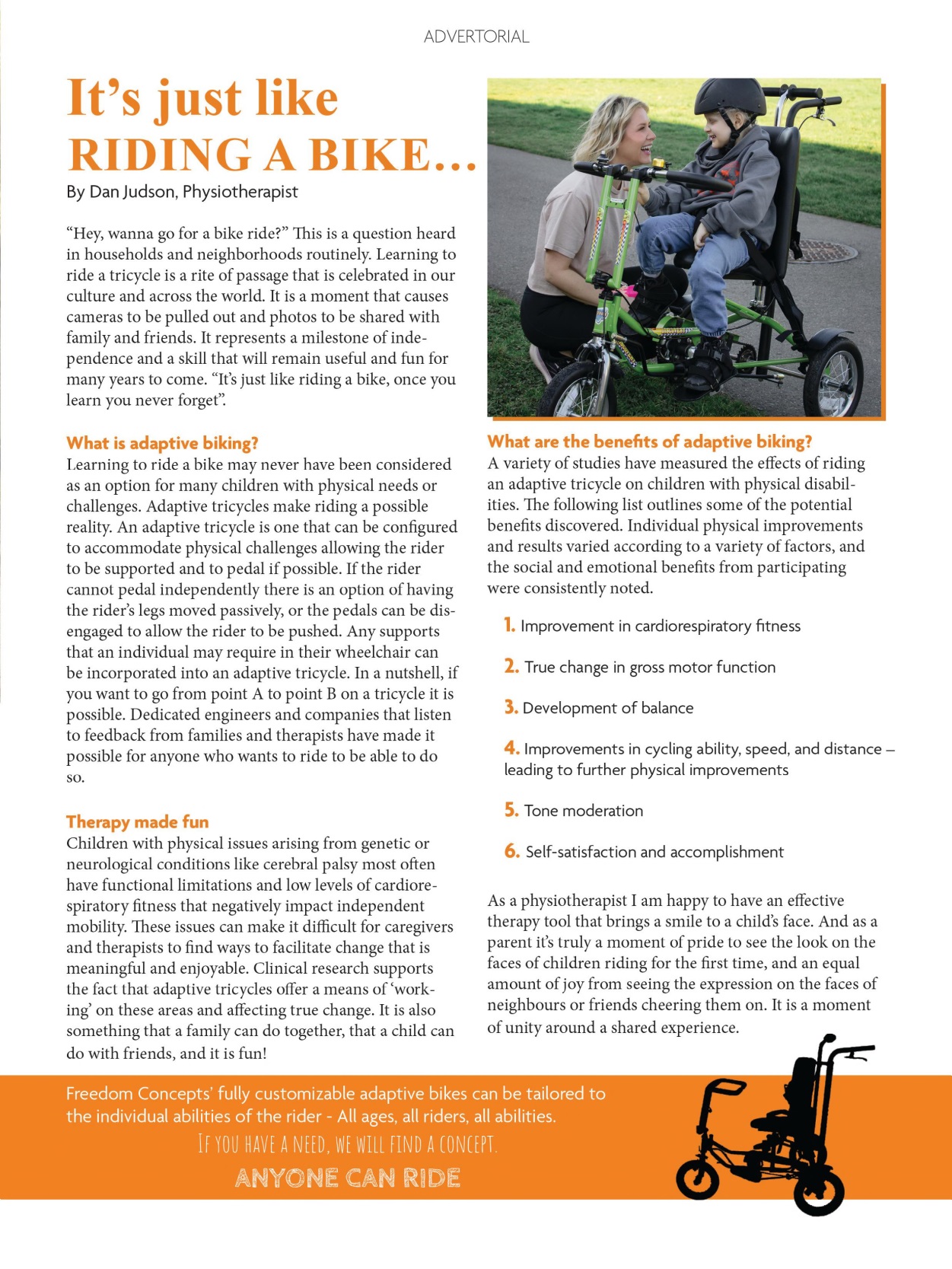
ADVERTORIAL
It's just like RIDING A BIKE..
By Dan Judson, Physiotherapist
"Hey, wanna go for a bike ride?" This is a question heard in households and neighborhoods routinely. Learning to ride a tricycle is a rite of passage that is celebrated in our culture and across the world. It is a moment that causes cameras to be pulled out and photos to be shared with family and friends. It represents a milestone of independence and a skill that will remain useful and fun for many years to come. "It's just like riding a bike, once you learn you never forget".
What is adaptive biking?
Learning to ride a bike may never have been considered as an option for many children with physical needs or challenges. Adaptive tricycles make riding a possible reality. An adaptive tricycle is one that can be configured to accommodate physical challenges allowing the rider to be supported and to pedal if possible. If the rider cannot pedal independently there is an option of having the rider's legs moved passively, or the pedals can be disengaged to allow the rider to be pushed. Any supports that an individual may require in their wheelchair can be incorporated into an adaptive tricycle. In a nutshell, if you want to go from point A to point B on a tricycle it is possible. Dedicated engineers and companies that listen to feedback from families and therapists have made it possible for anyone who wants to ride to be able to do so.
Therapy made fun
Children with physical issues arising from genetic or neurological conditions like cerebral palsy most often have functional limitations and low levels of cardiorespiratory fitness that negatively impact independent mobility. These issues can make it difficult for caregivers and therapists to find ways to facilitate change that is meaningful and enjoyable. Clinical research supports the fact that adaptive tricycles offer a means of 'working' on these areas and affecting true change. It is also something that a family can do together, that a child can do with friends, and it is fun!
What are the benefits of adaptive biking?
A variety of studies have measured the effects of riding an adaptive tricycle on children with physical disabil-ities. The following list outlines some of the potential benefits discovered. Individual physical improvements and results varied according to a variety of factors, and the social and emotional benefits from participating were consistently noted.
- Improvement in cardiorespiratory fitness
- True change in gross motor function
- Development of balance
- Improvements in cycling ability, speed, and distance —leading to further physical improvements
- Tone moderation
- Self-satisfaction and accomplishment
As a physiotherapist I am happy to have an effective therapy tool that brings a smile to a child's face. And as a parent it's truly a moment of pride to see the look on the faces of children riding for the first time, and an equal amount of joy from seeing the expression on the faces of neighbours or friends cheering them on. It is a moment of unity around a shared experience.
Freedom Concepts' fully customizable adaptive bikes can be tailored to the individual abilities of the rider - All ages, all riders, all abilities. If YOU RAVE A NEED, WE WILL FIND A CONCEPT.